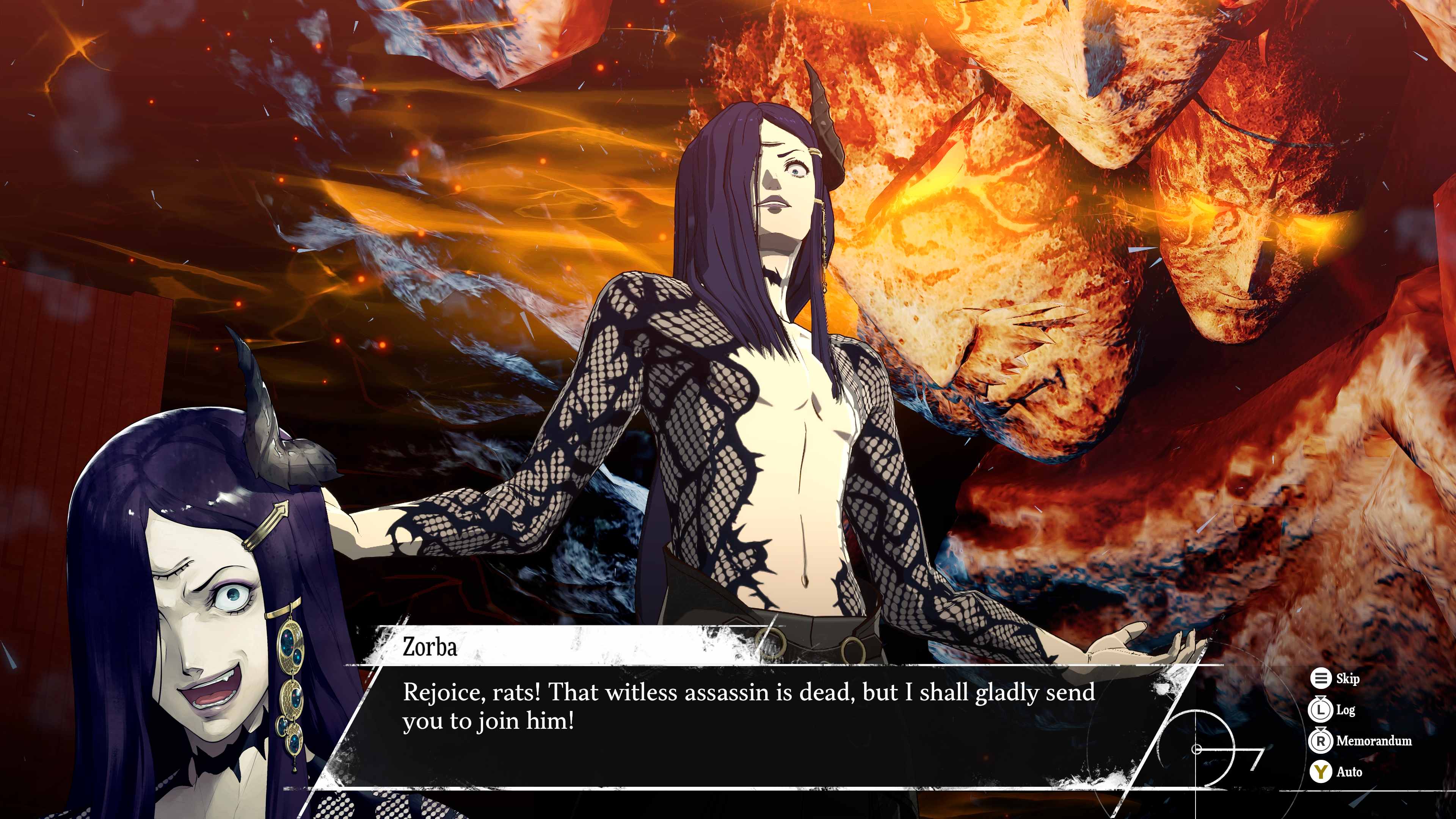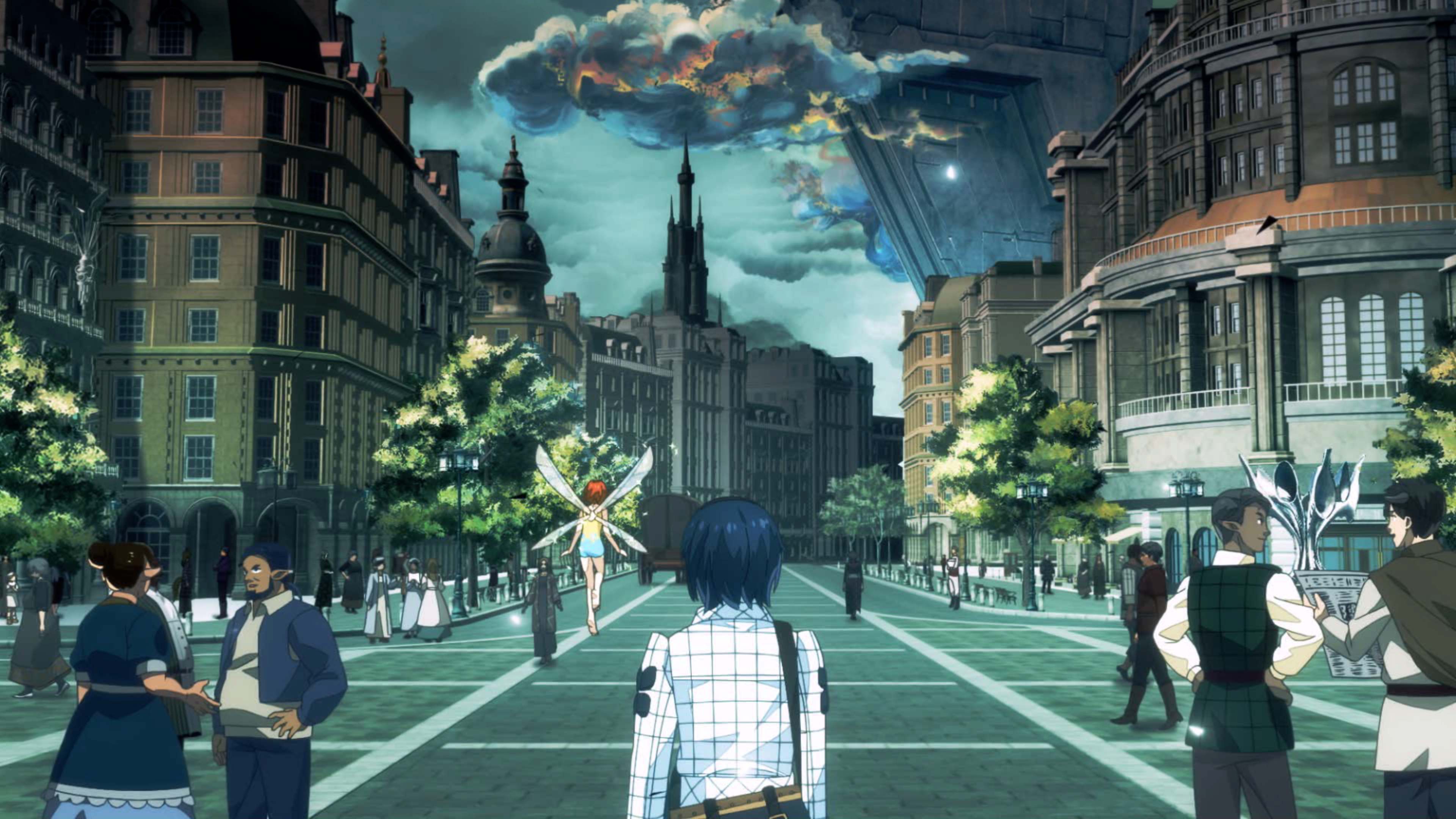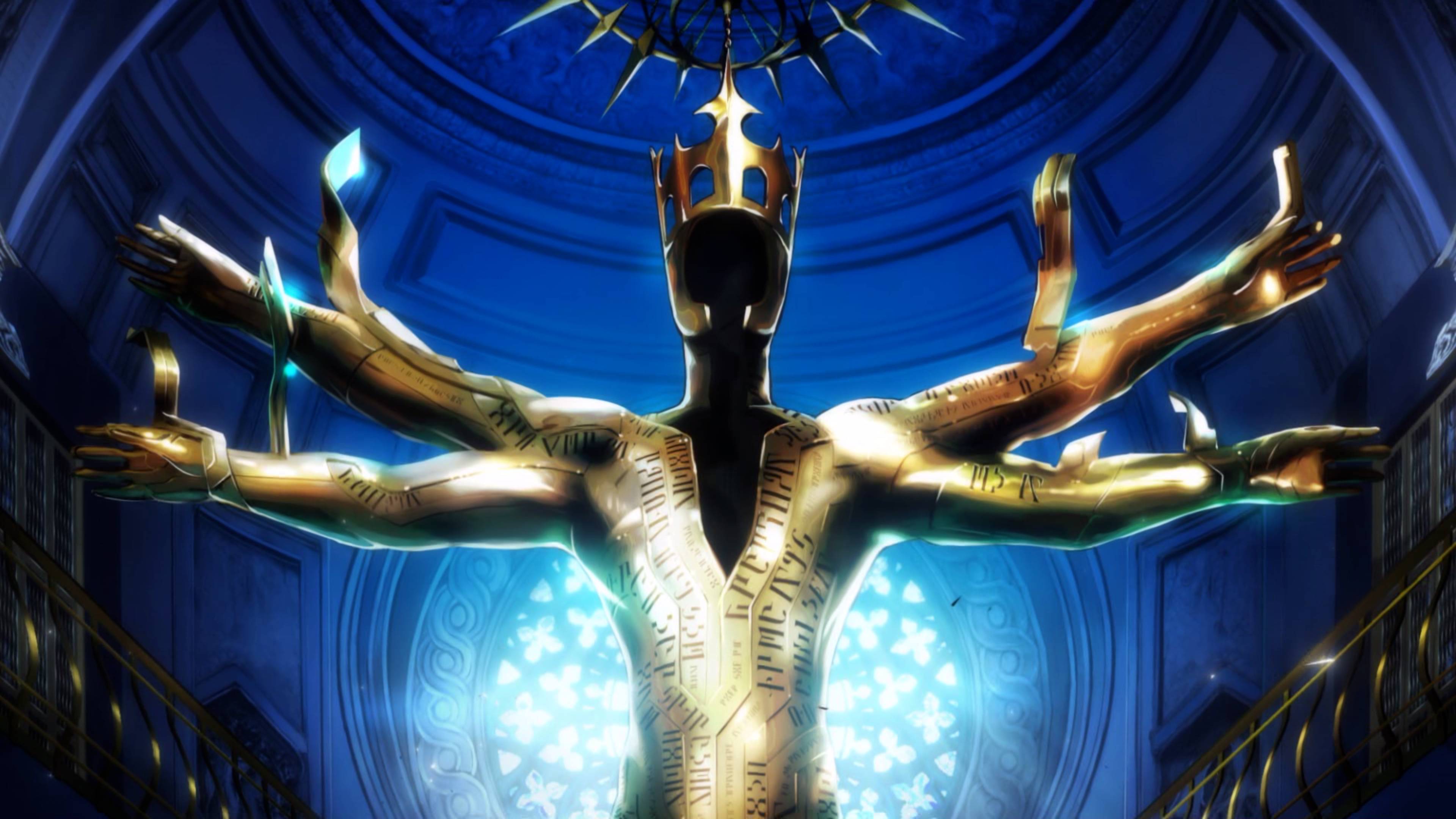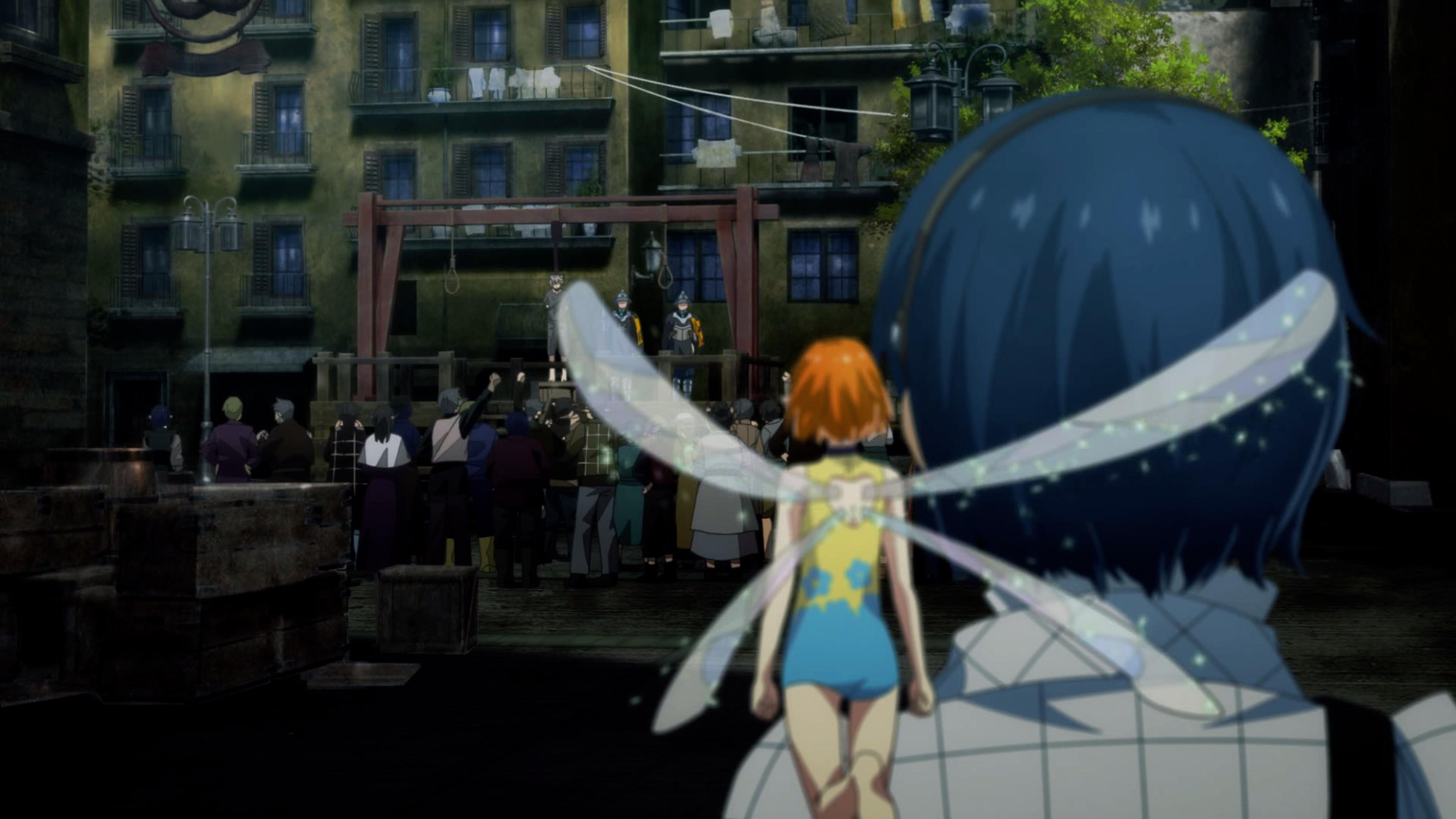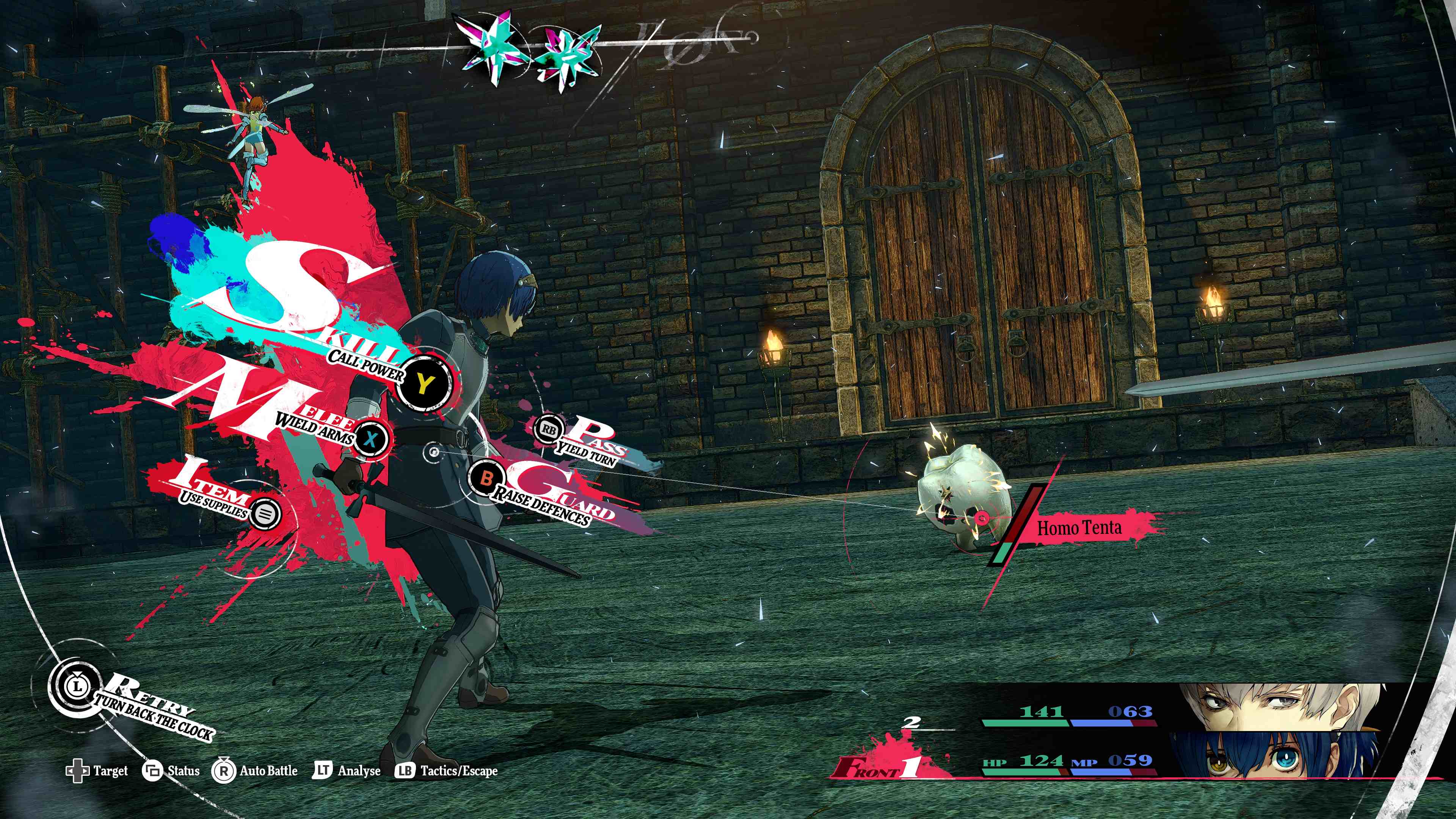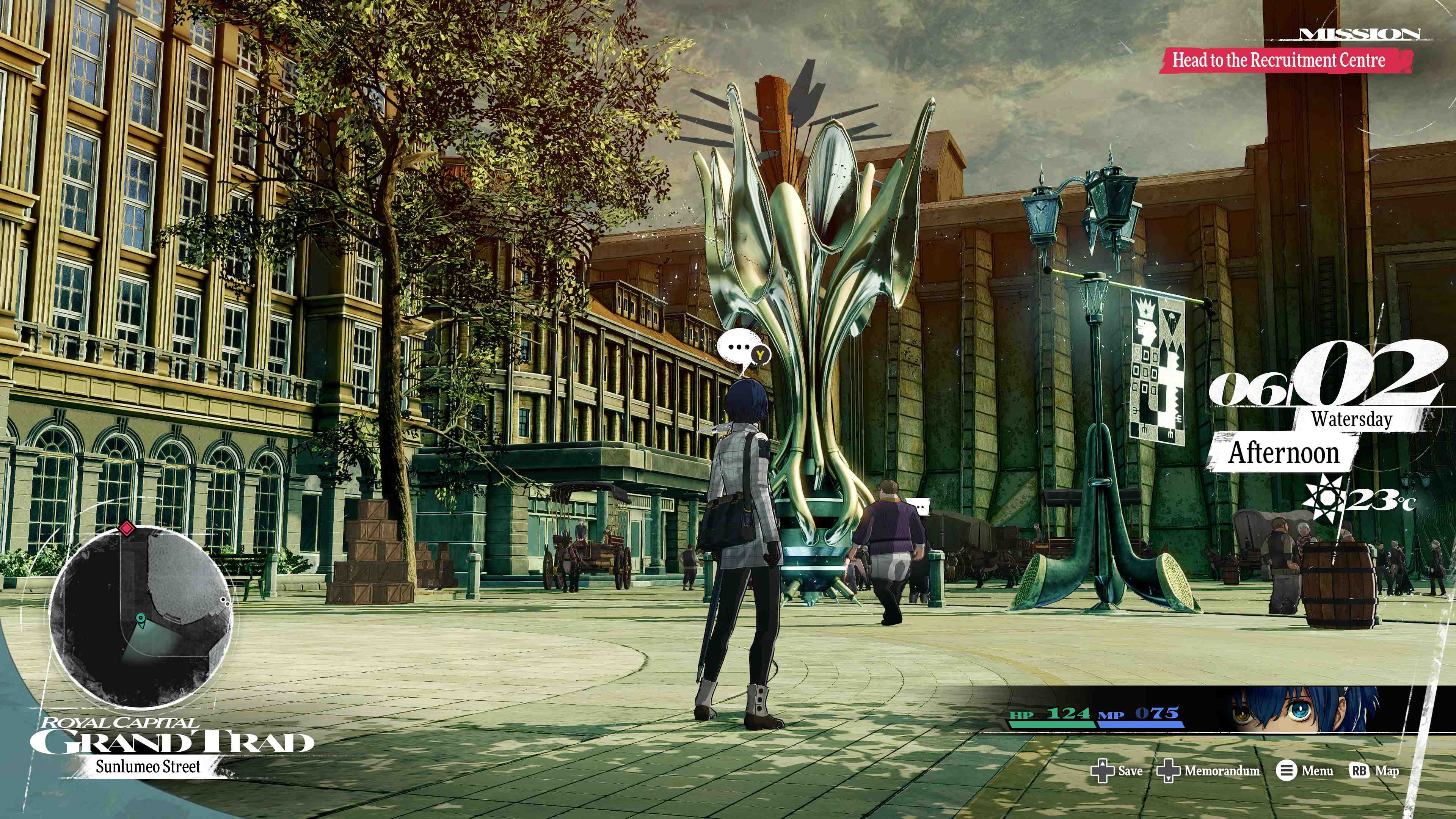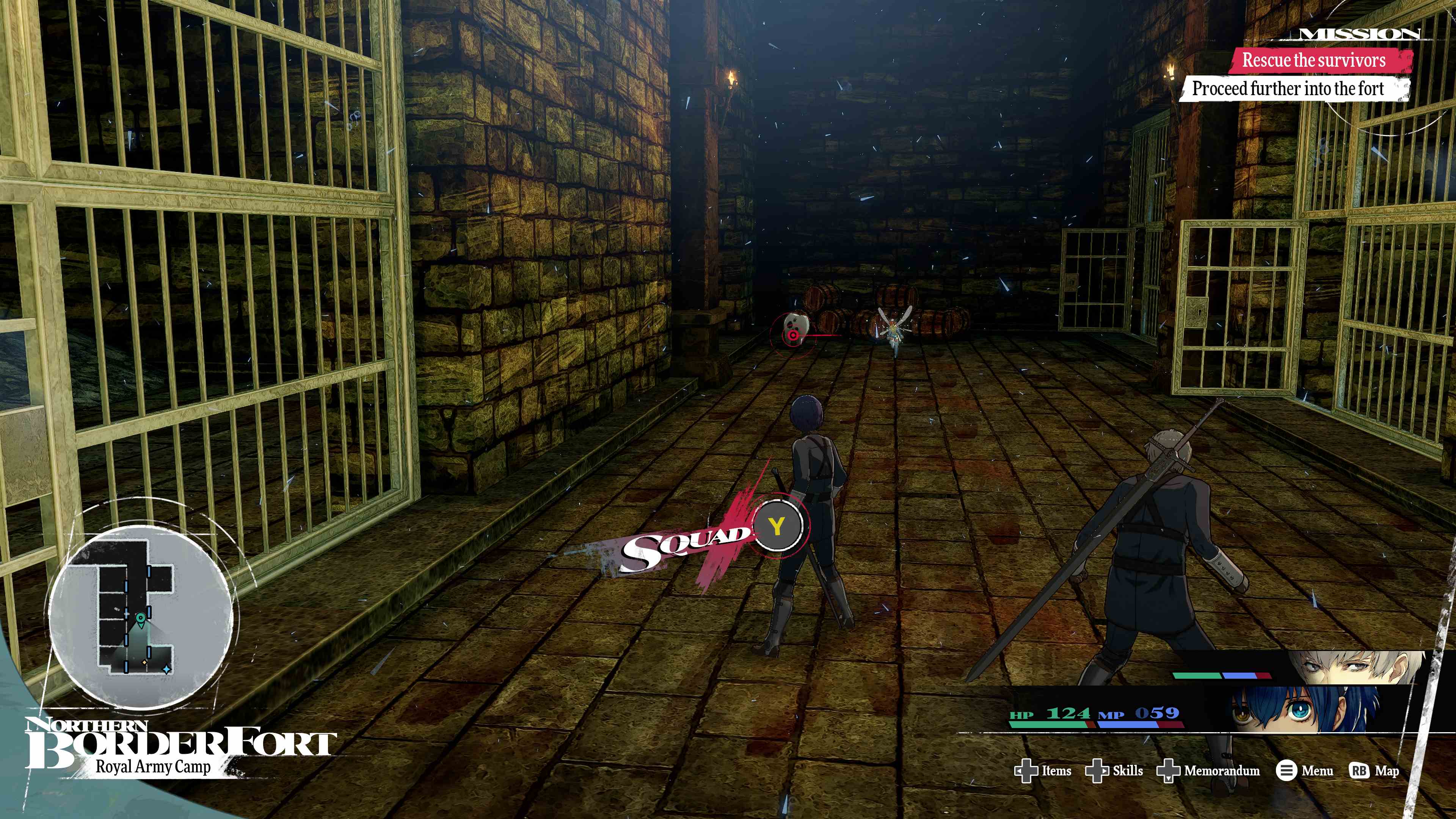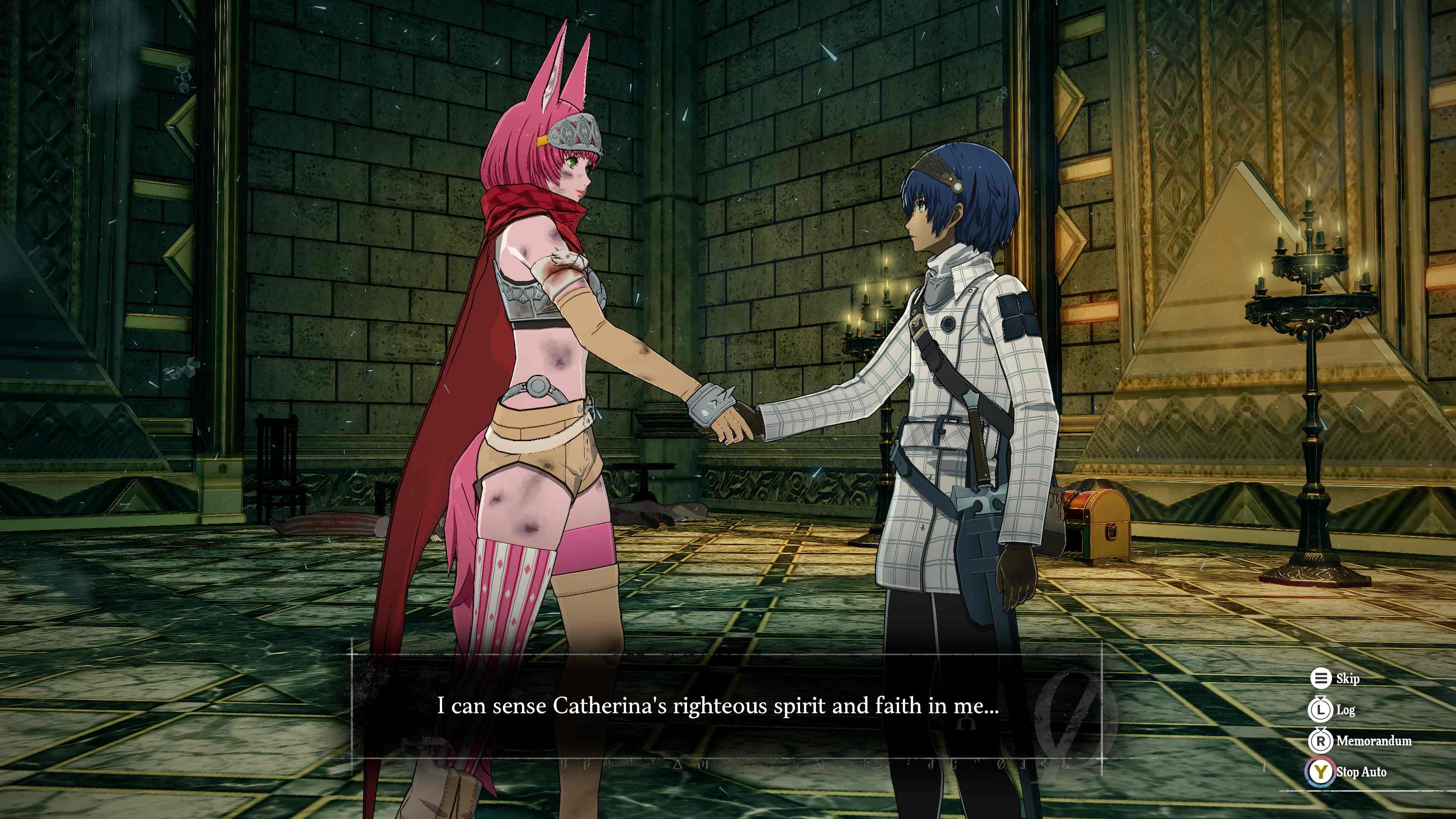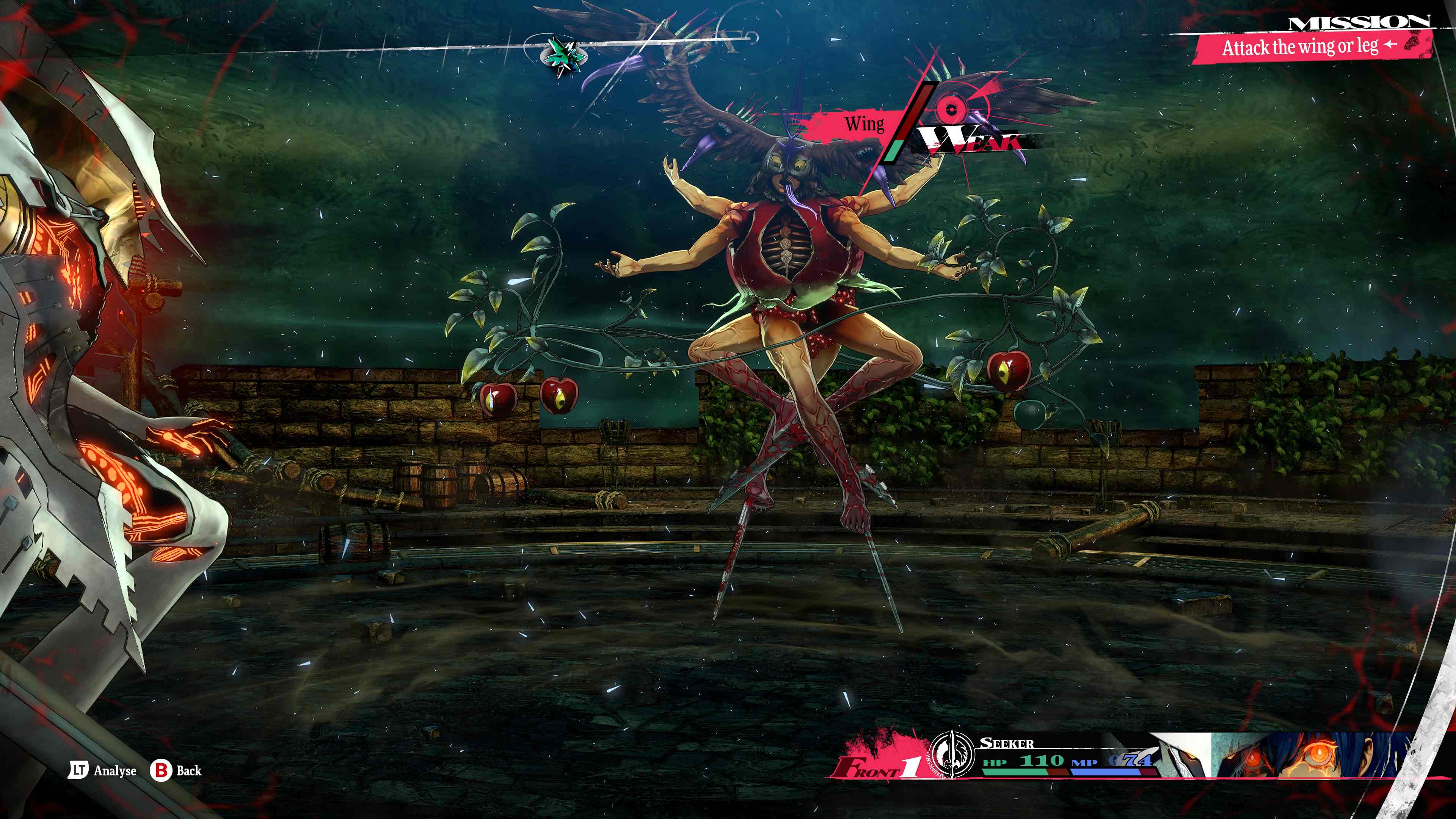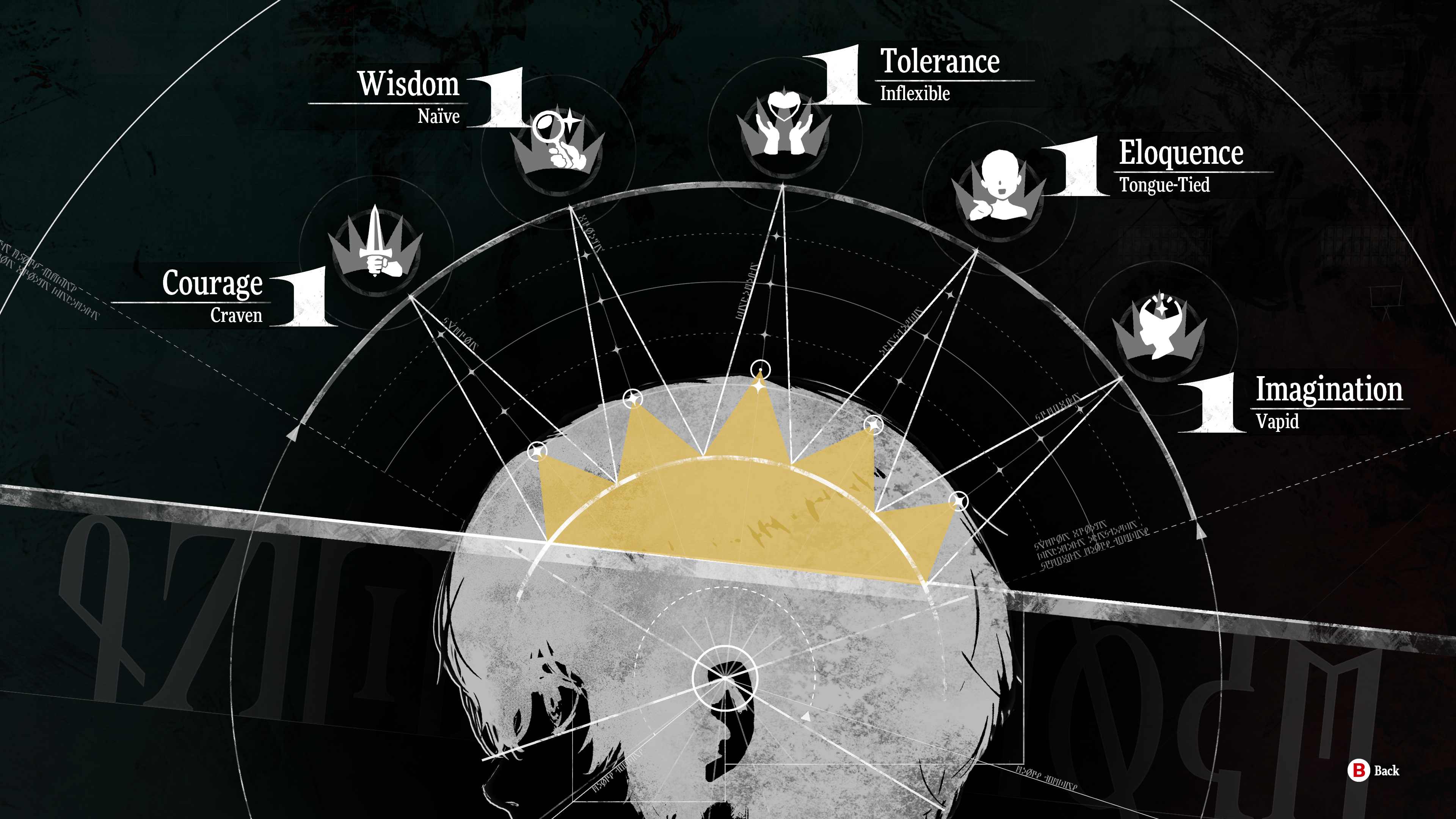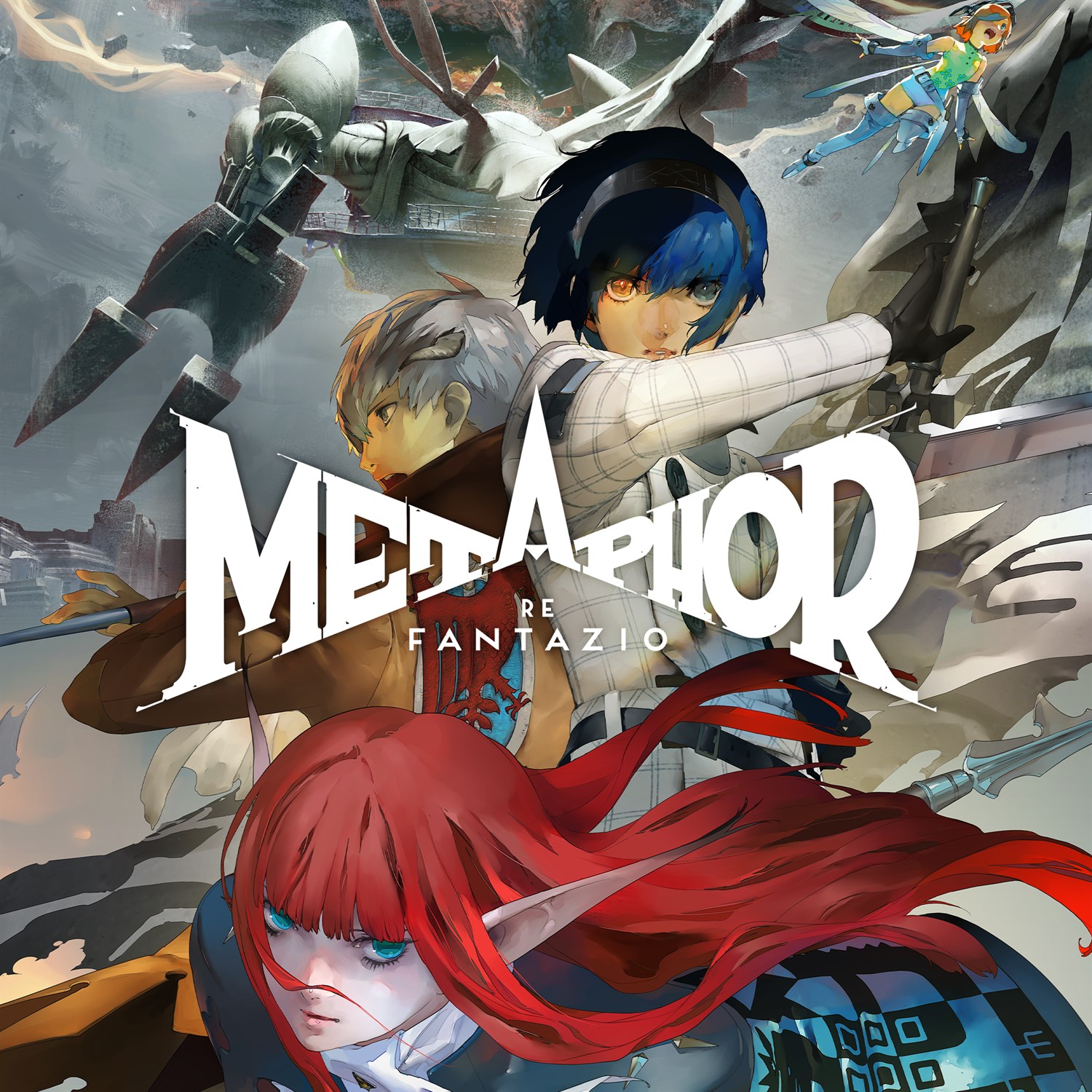When Metaphor: ReFantazio was first properly unveiled to the world, I honestly didn’t give it much thought. I’ll admit I’ve never played any of the Persona games, so a new IP from that team didn’t hold much interest for me.
Then, by simply being the only person who was able to, I went hands-on with Metaphor: ReFantazio during Summer Game Fest 2024, and suddenly, this unique Japanese role-playing game was on my radar. I’ve had the privilege of playing Metaphor: ReFantazio before launch, and everything I’ve played so far has been exactly what excited me during my initial preview and then some. The new Studio Zero team at Persona publisher Atlus has crafted something special.
However, the game has ended up being longer than I was initially told (I believe the 50-60 hours I was quoted is more-or-less just pushing through the main campaign without interacting with much side content), so between the long runtime and my time reviewing Ara: History Untold I have yet to finish Metaphor: ReFantazio. I can’t provide a final score until the credits roll, but I’ve spent well over 40 hours in the United Kingdom of Euchronia already, and I have a lot of thoughts about what may end up being one of the very best Xbox games of the year.
This review was made possible thanks to a pre-release review code provided by SEGA and Atlus. The companies had no input and did not see the contents of this review prior to publication.
What is Metaphor: ReFantazio?

Metaphor: ReFantazio is the first full project out of Studio Zero, the third (and newest) developer team at Atlus. Based in Japan and under the SEGA umbrella, Atlus is most known for its legendary Persona series of JRPGs, which boast a massive fanbase all over the world.
Metaphor: ReFantazio
• Price: $69.99 at Best Buy | Amazon
• Release date: Oct. 11, 2024
• Developer: Studio Zero
• Publisher: SEGA, Atlus
• Genre: Turn-based RPG
• Players: Single-player
• Install size: ~70.4GB
• Playtime: 40+ hours (incomplete)
• Platforms: Xbox, Windows PC, PlayStation
• Xbox Game Pass: No
• Reviewed on: Xbox Series X, ASUS ROG Ally X
Studio Zero was formed by members of the Persona series team, director Katsura Hashino, character designer Shigenori Soejima, and composer Shoji Meguro after the release of Persona 5 Royale, who all set out to work on a brand-new IP for Atlus. The result is Metaphor: ReFantazio, which clearly borrows many gameplay and social simulation elements found in Persona games but with a more fantastical setting in an all-new, highly unique world.
Set in the United Kingdom of Euchronia, tragedy befalls the world when the king is assassinated, and his only heir is believed to be long-dead. Unbeknownst to his slayer, though, the king had used the god-like magic exclusive to the royal family to set in motion the Tournament for the Throne upon his death, a competition that would decide the next king from any of the nation’s citizens based on the support and trust from the people. You play as an Elda, a member of an oft-scorned race, on a secret mission to save the Prince, the true Crown Heir, and prevent Euchronia from falling into chaos.
Metaphor: ReFantazio is a massive RPG adventure with a mixture of real-time and strategic turn-based combat and a unique “class” system based on magical Archetypes. The game is releasing on Oct. 11, 2024, for Xbox Series X|S, Windows PC, and PlayStation 5|4, and can be purchased for $69.99 from Best Buy. There’s also a Collector’s Edition for $149.99 at Best Buy, too. If you’re on the fence, you can play the first 5-7 hours of Metaphor: ReFantazio via its free demo, which transfers all progress to the main game.
Metaphor: ReFantazio — Performance and stability
Performance highlights
- Metaphor: ReFantazio has been running very well on Xbox Series X, with only a handful of dropped frames.
- This has also been a very polished game for me, as I’ve encountered remarkably few bugs.
- The game runs well on ASUS ROG Ally, too, and a pre-release patch seems to have largely fixed performance issues we discovered on PC.
I mostly played Metaphor: ReFantazio on the Xbox Series X, and the game has been running fantastic. You won’t find many graphical or performance settings here (or basically any, for that matter), but the game does look and run great. Performance is smooth even in crowded areas or with a lot of enemies on-screen, and during my playthrough, I’ve only noticed a handful of dropped frames.
Stability is also top-notch, with no crashes or major flaws. In fact, I can hardly think of any bugs I’ve encountered at all, which is honestly remarkable for an RPG of this size. Some players who have played the demo on PC reported CPU-related performance issues, especially in large open areas, but I can tell you that a pre-release patch during our review period has cleared up those issues and given my colleague Alex Cope a rock-solid framerate on PC.
I also played Metaphor: ReFantazio for several hours on my ASUS ROG Ally X, and that was a way better experience than I expected. At 1080p and the Low graphical preset, with AMD’s HYPR-RX graphical features enabled (our explainer on AMD Fluid Motion Frames on ROG Ally talks about some of this), I saw a stable ~35 frames-per-second (FPS) in open areas and ~65 FPS in combat and all other parts of the game.
Metaphor: ReFantazio is also Xbox Play Anywhere, meaning you can buy it once from the Microsoft Store and play it on Xbox and PC (including handhelds) with all your progress synced to the cloud. That came in handy for my recent work-related trip to San Francisco, as I played Metaphor: ReFantazio for hours on the plane.
Metaphor: ReFantazio — Art design and audio
Art & audio highlights
- Metaphor: ReFantazio has excellent art design, from its menus and interfaces to its character designs and worldbuilding.
- Its art style is likely to be divisive, however — this is hardly the most visually evocative game, with a flat and neutral color palette.
- However you feel about how the game looks, though, no one will argue that Metaphor: ReFantazio has solid audio design and a phenomenal soundtrack.
I personally enjoy how Metaphor: ReFantazio looks, as it’s an approachable art style that scales very well across hardware. However, it is divisive, and I have already seen people dismiss Metaphor: ReFantazio because of its neutral, almost desaturated color palette and uneven texture qualities. For me, though, the art design outweighs any weaknesses in the style.
Metaphor: ReFantazio does an excellent job building a believable, engaging, and unique world filled with interesting and deep characters. There are some stunning environments in this game, and each character feels visually and deliberately distinct. Enemies are also fascinating and wildly diverse, to say the least, ranging from your average RPG baddies to truly horrific Eldritch-esque monstrosities. Metaphor: ReFantazio doesn’t feel as “2D” as a lot of other 3D games with similar art styles, too — all the way to character clothing having proper depth and separation from the characters themselves.
The strengths of this game’s art design are never more evident than in its cinematic cutscenes and its interfaces. The former are beautifully animated and are filled with color and emotion, so it’s unfortunate that they feel so scarce in the grand scheme of the game. As for the menus, Metaphor: ReFantazio does a wonderful job balancing readability and usability with unique and striking visual designs and elements. Each menu feels wholly unique to Metaphor: ReFantazio, which is not an easy thing to accomplish.
Finally, audio! Not all of Metaphor: ReFantazio is fully narrated, but more than I expected is and the character voiceovers sound very good in both Japanese and English. Audio design is also solid for monsters, combat, and the world in general. All of it pales in comparison to this original soundtrack, though, which is composed by the masterful Shoji Meguro. This is a powerful, dynamic, and reactive soundtrack that perfectly underlines every battle, conversation, and development. It’s the kind of soundtrack you don’t even need the game itself to enjoy immensely.
Metaphor: ReFantazio — Narrative and world
Narrative highlights
- At first glance Metaphor: ReFantazio tells a fairly predictable story of a struggle for power in a dystopian society wracked by classism and discrimination.
- However, the game deviates from the expected in several creative ways and is overall well-written and directed.
- Studio Zero also did a brilliant job building a world that feels believable and more alive than what we usually see in video games.
Louis, a commoner-turned-warlord due to his unparalleled, prodigious abilities in magic, combat, and tactics, has assassinated the rightful king of the United Kingdom of Euchronia. Years earlier, the one and only crown heir also vanished and was presumed killed. Louis had intended to take the throne for himself, citing power as being the only hierarchy worth respecting, but the king’s forethought led to the activation of the royal family’s all-powerful magic.
Instead of a violent coup, Louis was instead thrown into the Tournament for the Throne. According to the king and his magic, anyone who wins the trust and support of Euchronia’s people during the set timeframe will become king, regardless of whether they’re nobility, commoner, or criminal. Our protagonist, whom you name (but otherwise don’t customize), has a different objective — slay Louis in order to break the curse that has rendered the missing prince comatose for years and restore his rightful place on the throne.
There’s just one problem: Louis and all the other top candidates in the Tournament for the Throne are effectively immortal due to the protection of the king’s royal magic, as violence and assassination are not the tools by which the king wishes his replacement to be chosen. This is the foundation for Metaphor: ReFantazio’s main narrative, and it forces you and all your companions to be creative and actually join the Tournament for the Throne. You have to earn the support of the people who despise you because of your lineage in order to get closer to Louis and save the prince from certain death.
I really like the story that has been told so far in Metaphor: ReFantazio, but by my reckoning, I’m likely only around halfway through the game at the time of writing. What I can say is that the United Kingdom of Euchronia feels like a real, believable fantasy world that changes and progresses over time — and time does move. Everything you do progresses time, and you have to choose how you spend the limited time you have carefully; do you grow closer to your friends and followers, help people in need, grow stronger in dungeons, or move forward with your plans to save the prince?
During that time, you’ll learn more about Euchronia and its united yet separate nations, the divided tribes (or races) that are shattered by rampant discrimination, and the imbalance between the poor masses and the wealthy few. You’ll also learn that Euchronia may have looked more like our world a long time ago, but it was destroyed by the advent of technology that was too powerful to control. Metaphor: ReFantazio even goes so far as to actively recognize you as the player, positioning you as the unseen hand of fate guiding the protagonist in his world from our world.
I’ve already seen so much that I won’t spoil, but suffice it to say that I’m absolutely loving this story so far. I also really enjoy the social simulation elements that are brought over from the Persona series, which sees you develop closer bonds with your companions in order to become closer and more powerful. Some of these side stories are incredibly emotional, such as that of the young girl Maria, who welcomes you into her broken family after her father is murdered.
I was worried at first that the ever-progressing clock that I was introduced to during my demo would annoy me in the full game, but Metaphor: ReFantazio does a good job giving you access to the game in pieces and giving you just enough time to do basically everything as long as you’re smart and carefully consider the order in which you do things.
Characters are also well written and voiced, and really add a lot to the narrative delivery. However, despite being this charismatic, chosen-by-fate leader, the protagonist plays a rather detached role much of the time, and often says little. There are also plenty of times where gameplay clearly takes a step back in order to prioritize the story, which I’m sure some gamers won’t love.
Metaphor: ReFantazio — Gameplay and combat
Gameplay highlights
- Metaphor: ReFantazio is basically split into three parts: strategic turn-based combat, dungeon exploration, overworld combat, and social simulation.
- All these pieces tie together well and have remained very fun and engaging after dozens of hours of play time.
- The turn-based combat is especially interesting because of the Archetype magic system, which lets you explore essentially countless different strategies with your party.
Metaphor: ReFantazio will likely be familiar to Persona fans, but this is my first time playing an RPG like this. In essence, your time in Euchronia will either be spent exploring dungeons and dispatching or stunning foes in quick, basic combat, engaging with more powerful enemies in tactic-heavy, diverse turn-based combat, or exploring peaceful areas and shopping, interacting with NPCs, developing bonds with followers and companions, and evolving your skills.
To start, Metaphor: ReFantazio is not an open-world game. In fact, it’s fairly linear as RPGs go, slowly giving you access to more areas as you progress through the story and never really giving you the option to wander off the main path for 40 hours. You will have a lot of control over the order in which you do things and how you do them, but the bigger picture will look pretty similar from playthrough to playthrough.
When you’re inside the hub areas like cities, you won’t encounter combat, but you can listen to the chatter of NPCs. Yes, the people in cities and villages will be talking amongst themselves and even reacting to you and your actions, helping you learn much more about the world and your standing in it. Action-oriented gameplay is reserved for defined dungeons, which are incredibly varied in setting and challenge but largely resemble labyrinths filled with enemies and treasure.
When you’re exploring dungeons, you’re not simply wandering around waiting to be dragged into battles. You can battle even in real-time, quickly eliminating much weaker enemies or gaining an advantage over stronger foes by stunning them. There’s risk, too, though, as enemies can attack you too (and if you’re attacked by a strong opponent first, be prepared for an extraordinarily difficult fight).
When you are dragged into these turn-based fights, Metaphor: ReFantazio’s gameplay truly shines. Your protagonist awakens an ancient magic known as Archetypes, which combines the souls of ancient heroes that followed similar paths. By channeling this magic through your emotions, you can unleash powerful abilities along that path. The protagonist can also awaken this ability in those he grows close to, but it goes even further: as you unlock new Archetypes and develop new bonds, you can also share any Archetype you’ve discovered with any of your companions, and those companions can also share the abilities and skills they’ve learned between the Archetypes they can channel.
Basically, Archetypes are like your classic RPG classes, but imagine that each character can learn any class you unlock and can mix and match the capabilities of those classes once they learn them. The result is a very diverse, dynamic combat system that allows for practically infinite strategies. You can let characters remain in their natural role decided by their unique strengths and weaknesses, of course, but you can also create truly unique combinations that take advantage of the vast range of offensive, defensive, supportive, and even team-based “Synthesis” abilities you’ll learn.
Over 40 hours in, I still haven’t discovered every Archetype and certainly haven’t come close to unlocking all their secrets. There’s so much freedom here, and it means that after dozens of hours, I’m still excited by the turn-based combat, especially given that the variety you’ll receive is also provided to the enemies you’ll face.
The dungeons are fun to explore, and the combat is excellent, but I will say that Metaphor: ReFantazio doesn’t do a great job making me excited to find a treasure chest, as a lot of the time, the loot you’ll find inside is boring or useless. Still, I’m having a blast, even when I don’t have to actually play the game… but I can’t say that for everyone.
Even up to where I have played, there have been multiple instances where, for 20, 30, even 40 or more minutes, there is little to no gameplay of any kind. You can actually set down the controller and still progress, as it’s all cinematics and conversations (both voiced and not). I don’t mind this as I’m actually engrossed in this world and its characters and want to learn more, but at times, even I have wondered when I’ll actually be able to do something again, and that’s bound to deter players who care more about the gameplay than the story.
Metaphor: ReFantazio — Accessibility and approachability
Accessibility highlights
- Metaphor: ReFantazio is fairly approachable, although it does throw a lot of information and systems at you that you’re expected to remember, and tooltips are sparse.
- However, turn-based combat makes the gameplay very approachable, and there are various difficulty levels.
- Accessibility options are relatively limited, though, with no advanced options for visual, audible, or physical disabilities — not even a way to rebind controls.
Finally, as I usually do, I want to end on both the accessibility and approachability of Metaphor: ReFantazio. This is an area where this genre of video games seems to struggle, and Metaphor: ReFantazio doesn’t entirely buck those trends. As far as approachability is concerned, Metaphor is a straightforward game to ease into, with a fairly linear storyline that’s easy to follow. Turn-based combat is also a boon for those who may struggle with challenging games that demand high physical coordination.
However, Metaphor: ReFantazio does throw a ton of systems at you, and while there are extensive tutorials, recaps, and summaries for you to peruse, you do have to go searching for them if you forget something. At least there are various difficulty tiers — both for those who want an easier time and for those who want to challenge themselves. Accessibility-wise, matters are also mixed.
You have your usual options for subtitles and granular audio controls, as well as an assortment of control and interface-related customizations. However, Metaphor: ReFantazio is missing some obvious features, such as color-blind modes, ways to improve the legibility and navigability of the menus, remappable controls (which should be a standard feature for any modern game), and more. I had certainly hoped for more from such an established studio in this department.
Metaphor: ReFantazio review — Final thoughts
You should play this if …
✅You love the Persona games already
If you’re already a Persona fan, then this is a no-brainer for you. Metaphor: ReFantazio borrows a lot from the legendary JRPG franchise as it’s made by many of the same people — it’s just a new storyline in a new world with some fresh innovations.
✅You’re looking for a meaty, expansive RPG to occupy your time
If you’re on the market for a game that can potentially take up dozens of your hours, Metaphor: ReFantazio has the content and the diversity to do so and remain fun the entire time. That’s especially true if you’re exhausted by open worlds, as Metaphor: ReFantazio won’t force you to explore endless plains and mountains.
You should not play this if …
❌You can’t stand games that take away gameplay at times
I’m really enjoying the story of Metaphor: ReFantazio so far, but I can’t deny that I’ve simply not been holding the controller for at least an hour of the time I’ve spent with the game so far. If you’re someone who wants your game (and its story) to be all gameplay, all the time, Metaphor: ReFantazio is likely to frustrate you.
I can’t give you my final thoughts on or assign a review score to Metaphor: ReFantazio yet, but I’ve spent enough time with the game already to be confident that, when the credits do roll, the vast majority of this review will remain entirely unchanged.
Unless something drastic changes in the second half of the game, Metaphor: ReFantazio is turning out to be one of the most impactful and memorable games I’ve played this year. It’s honestly making me want to visit the Persona series, and I may just download Persona 3 Reload and add it to the backlog after this. Metaphor: ReFantazio is a lengthy, ambling RPG that focuses a lot on its worldbuilding, narrative, and characters, and I love it for that.
Masterminding the strangest concoctions of Archetypes, abilities, and equipment for my growing party has also been a source of joy for me these last couple of weeks. I admit there have been more than one instance of me lying in bed attempting to go to sleep, only to get back up, turn my Xbox back on, and play far too late into the night. Metaphor: ReFantazio’s fascinating gameplay and social simulation elements, combined with its engrossing world and unique (sometimes on the nose) narrative, have already won me over well before I’ve crossed the finish line.
This is one for the Persona fans, the JRPG fans, the story-driven game fans… it’s not for the players who demand every moment be nail-biting, action-packed gameplay. I’ll be back once I’ve properly finished Metaphor: ReFantazio with my final score, but don’t expect too much of what I’ve written to change. If you’re sold, you can pick up Metaphor: ReFantazio on Xbox for $69.99 at Best Buy.
Metaphor: ReFantazio introduces a brand-new universe to the Atlus catalog, one that’s embroiled in political turbulence and discriminatory conflicts. It’s an excellent RPG that combines real-time, turn-based, and social simulation elements to brilliant effect, all in an interesting world filled with characters you’ll actually care about.




